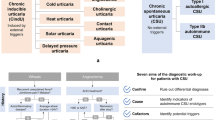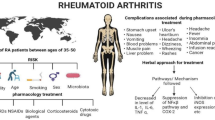Abstract
As an autosomal recessive autoinflammatory disease, treatment of Familial Mediterranean fever (FMF) has still gaps. Clinical studies are proving the safety and efficacy of colchicine in patients with FMF. However, there are very limited data on colchicine-resistant patients treated with canakinumab. This study presents the real-life experience of two rheumatology clinics choosing canakinumab in adult patients with FMF resistant to standard therapy. Treatment-resistant FMF patients with validated diagnoses enrolled from two rheumatology clinics. A special database was generated for the study and patients' demographic characteristics, FMF attack characteristics, adverse events seen during treatment, family history, MediterraneanFeVer (MEFV) mutations, and laboratory results recorded. Patients with missing dates were excluded from the analysis. PRAS score is used to assess the disease activity. A total of thirty colchicine and/or anakinra-resistant patients were enrolled to study. Twenty-one patients were female (70%) and the average disease duration was 21 years. The time from colchicine to anakinra was 4.27 years and the time to canakinumab was 1.52 years. Abdominal pain (100%), fever (93.3%), chest pain (56.7%) were the most prevailed findings. Morning stiffness, myalgia, low back pain, chest pain was the predominant musculoskeletal findings. Median colchicine dose was 2 mg/day (min–max 0.5–3 mg/day). The most common side effect during anakinra treatment, apart from treatment unresponsiveness, was injection site reactions. Before canakinumab treatment, the mean number of attacks was 8.3 in the 24 weeks, 4.33 in the third month of canakinumab treatment, and 1.56 at the last visit (p < 0.001). Also, the mean duration of attacks was 67.20 h before canakinumab treatment, this period decreased to 18.27 h after six months of canakinumab treatment (p < 0.001). Canakinumab is effective and tolerable to reduce attacks in resistant patients with FMF. Laboratory findings and clinical observation reveals that canakinumab can be another treatment option for colchicine and/or anakinra non-responders. Further studies with larger patients are required to validate recent findings with canakinumab.

Similar content being viewed by others
Code availability
Not applicable.
References
Özçakar ZB, Özdel S, Yılmaz S, Kurt-Şükür ED, Ekim M, Yalçınkaya F (2016) Anti-IL-1 treatment in familial Mediterranean fever and related amyloidosis. Clin Rheumatol 35:441–446. https://doi.org/10.1007/s10067-014-2772-2
Ozdogan H, Ugurlu S (2017) Canakinumab for the treatment of familial Mediterranean fever. Expert Rev Clin Immunol 13:393–404. https://doi.org/10.1080/1744666X.2017.1313116
Meinzer U, Quartier P, Alexandra JF, Hentgen V, Retornaz F, Koné-Paut I (2011) Interleukin-1 targeting drugs in familial Mediterranean fever: a case series and a review of the literature. Semin Arthritis Rheum 41:265–271. https://doi.org/10.1016/j.semarthrit.2010.11.003
Gül A (2016) Approach to the patients with inadequate response to colchicine in familial Mediterranean fever. Best Pract Res Clin Rheumatol 30:296–303. https://doi.org/10.1016/j.berh.2016.09.001
Eren Akarcan S, Dogantan S, Edeer Karaca N, Aksu G, Kutukculer N (2020) Successful management of colchicine resistant familial Mediterranean fever patients with a standardized canakinumab treatment protocol: a case series and literature review. Rheumatol Int 40:161–168. https://doi.org/10.1007/s00296-019-04366-w
Babaoglu H, Varan O, Kucuk H, Atas N, Satis H, Salman R, Ozturk MA, Goker B, Tufan A, Haznedaroglu S (2020) Effectiveness of canakinumab in colchicine- and anakinra-resistant or -intolerant adult familial Mediterranean fever patients: a single-center real-life study. J Clin Rheumatol 26:7–13. https://doi.org/10.1097/RHU.0000000000000873
Erden A, Batu ED, Sarı A et al (2018) Which definition should be used to determine colchicine resistance among patients with familial Mediterranean fever? Clin Exp Rheumatol 36:97–102
Jesenak M, Hrubiskova K, Kapustova L, Kostkova M, Banovcin P (2018) Canakinumab as monotherapy for treatment of familial Mediterranean fever—first report in Central and Eastern Europe region. Bratisl Lek Listy 119:198–200
Ozen S, Demirkaya E, Erer B et al (2016) EULAR recommendations for the management of familial Mediterranean fever. Ann Rheum Dis 75:644–651. https://doi.org/10.1136/annrheumdis-2015-208690
Nuki G (2008) Colchicine: its mechanism of action and efficacy in crystal-induced inflammation. Curr Rheumatol Rep 10:218–227. https://doi.org/10.1007/s11926-008-0036-3
Cerquaglia C, Diaco M, Nucera G, La Regina M, Montalto M, Manna R (2005) Pharmacological and clinical basis of treatment of Familial Mediterranean Fever (FMF) with colchicine or analogues: an update. Curr Drug Targets Inflamm Allergy 4:117–124. https://doi.org/10.2174/1568010053622984
Pras E, Livneh A, Balow JE et al (1998) Clinical differences between North African and Iraqi Jews with familial Mediterranean fever. Am J Med Genet 75:216–219
Heller H, Sohar E, Sherf L (1958) Familial Mediterranean fever. AMA Arch Intern Med 102:50–71. https://doi.org/10.1001/archinte.1958.00260190052007
Sohar E, Gafni J, Pras M, Heller H (1967) Familial Mediterranean fever. A survey of 470 cases and review of the literature. Am J Med 43:227–253. https://doi.org/10.1016/0002-9343(67)90167-2
Berdeli A, Şenol Ö, Talay G (2019) Treatment of familial mediterranean fever with canakinumab in patients who are unresponsive to colchicine. Eur J Rheumatol 6:85–88. https://doi.org/10.5152/eurjrheum.2019.18190
De Benedetti F, Antón J, Gattorno M et al (2016) THU0569 pharmacokinetics and pharmacodynamics of canakinumab in patients with autoinflammatory periodic fever syndromes (colchicine resistant FMF, HIDS/MKD and TRAPS). Ann Rheum Dis 75:397–398. https://doi.org/10.1136/annrheumdis-2016-eular.3617
Kucuksahin O, Yildizgoren MT, Ilgen U, Ates A, Kinikli G, Turgay M, Erten S (2017) Anti-interleukin-1 treatment in 26 patients with refractory familial mediterranean fever. Mod Rheumatol 27:350–355. https://doi.org/10.1080/14397595.2016.1194510
Laskari K, Boura P, Dalekos GN et al (2017) Longterm beneficial effect of canakinumab in colchicine-resistant familial Mediterranean fever. J Rheumatol 44:102–109. https://doi.org/10.3899/jrheum.160518
Ben-Zvi I, Kukuy O, Giat E et al (2017) Anakinra for colchicine-resistant familial mediterranean fever: a randomized, double-blind, placebo-controlled trial. Arthritis Rheumatol (Hoboken, NJ) 69:854–862. https://doi.org/10.1002/art.39995
Hentgen V, Vinit C, Fayand A, Georgin-Lavialle S (2020) The use of Interleukine-1 inhibitors in familial Mediterranean fever patients: a narrative review. Front Immunol 11:971. https://doi.org/10.3389/fimmu.2020.00971
Druyan A, Giat E, Livneh A, Grossman C, Ben-Zvi I, Lidar M (2021) Effect of interleukin-1 inhibition in a cohort of patients with colchicine-resistant familial Mediterranean fever treated consecutively with anakinra and canakinumab. Clin Exp Rheumatol [published online ahead of print, 2021 Jul 22]
Atas N, Eroglu GA, Sodan HN et al (2021) Long-term safety and efficacy of anakinra and canakinumab in patients with familial Mediterranean fever: a single-centre real-life study with 101 patients Clin Exp Rheumatol [published online ahead of print, 2021 Jun 21]
Funding
This research received no specific grant from any funding agency in the public, commercial, or not-for-profit sectors.
Author information
Authors and Affiliations
Contributions
All authors contributed to the study conception, design and data collection. Material preparation and analysis were performed by YK, HHG and MTD. The first draft of the manuscript was written by YK and all authors commented on previous versions of the manuscript. All co-authors are fully responsible for all aspects of the study and the final manuscript in line with the IJME 4 criteria.
Corresponding author
Ethics declarations
Conflicts of interest
The authors declare that there are no conflicts of interest.
Ethical approval
All procedures performed in studies involving human participants were performed in accordance with the ethical standards of the institutional and/or national research committee and with the 1964 Helsinki Declaration and its later amendments or comparable ethical standards. Ethical approval was taken from the Marmara University Ethics Committee on 09. 2020. The protocol number was 1297.
Consent to participate
Informed consent was obtained from all subjects before enrollment.
Consent for publication
Additional informed consent was obtained from all individual participants for whom identifying information is included in this article.
Additional information
Publisher's Note
Springer Nature remains neutral with regard to jurisdictional claims in published maps and institutional affiliations.
Rights and permissions
About this article
Cite this article
Karabulut, Y., Gezer, H.H. & Duruöz, M.T. Canakinumab is effective in patients with familial Mediterranean fever resistant and intolerant to the colchicine and/or anakinra treatment. Rheumatol Int 42, 81–86 (2022). https://doi.org/10.1007/s00296-021-04997-y
Received:
Accepted:
Published:
Issue Date:
DOI: https://doi.org/10.1007/s00296-021-04997-y




